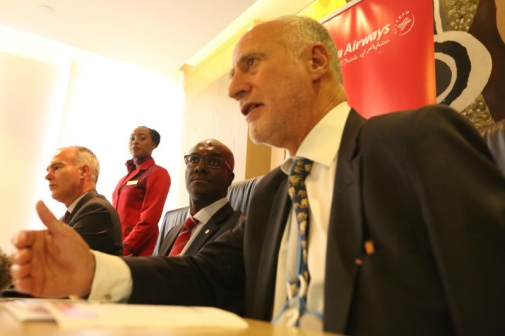×
The Standard e-Paper
Home To Bold Columnists

Kenya Airways Board Chairman Michael Joseph flanked by CEO and Managing Director Mbuvi Ngunze (centre) and Group Commercial Director Vincent Coste during investor briefing in Nairobi for the company's full year performance for the period 1st April 2016 to 31st March 2017. (Photo: David Njaaga/Standard)
On the eve of the General Election, some shareholders of Kenya Airways (KQ) will be staring at near-worthless stock after being put through a painful process to reinvigorate the national carrier.